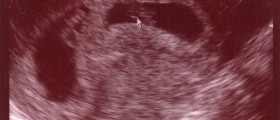
Dr Antonina Sazonova of Sahlgrenska University Hospital in Gothenburg, Sweden, wanted to find out more about the subject. She and her team analyzed data from IVF transfers done with both fresh and frozen embryos, from IVF clinics across the country between 2002 and 2006. There were 991 women who ended up with twin pregnancies following the transfer of multiple embryos, as well as 921 women who had two singletons after two separate pregnancies and two separate rounds of IVF. Sazonova's research showed that:
Nearly 47 percent of the twins were born prematurely, with 39 percent having a low birth weight. Only seven percent of singleton babies were born prematurely, while five percent had a low birth weight. Twins were more likely to have respiratory problems, sepsis and jaundice. Twin mothers were two to three times more likely to develop the life-threatening pregnancy complication preeclampsia. Twin mothers ended up giving birth by cesarean section four times more often than mothers of single babies. No differences were found in the rates of birth defects and other life-threatening health problems.The new study shows that people who are considering IVF need to think carefully about the number of embryos they have transferred. The idea that you can have twins and create a "complete family" through one pregnancy and with as few round of IVF as possible may sound logical but there is obviously much more to it. Discuss the benefits of single embryo IVF with your fertility clinic, and with your partner. Having two children through two different pregnancies may well be the way to go.










_f_280x120.jpg)




Your thoughts on this
Loading...